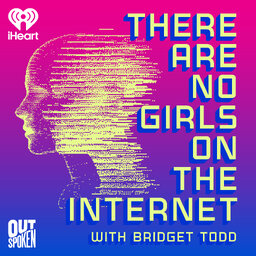ChatGPT gets sued; Google's anti-choice cash in; GLAAD grades Twitter; Teslas go full self-rampaging; Women be Gaming — NEWS ROUNDUP
A besmirched radio host sues OpenAI over ChatGPT hallucinations of impropriety. Google rakes in ad cash from anti-choice "pregnancy crisis centers" designed to trick pregnant people. GLAAD releases its third annual Social Media Safety Index on platform safety for LGBTQ individuals (spoiler: Twitter is going backwards). More Teslas are crashing than previously realized. Majorities of GenXers and Millenials would like to travel back in time before social media existed.
Read the GLAAD report, it's accessible and interesting: https://assets.glaad.org/m/7adb1180448da194/original/Social-Media-Safety-Index-2023.pdf
More than half of Nintendo Switch owners are female: https://mynintendonews.com/2023/06/10/us-47-of-console-gamers-are-female-and-52-own-nintendo-switch/
Read about the lawsuit against OpenAI. Make sure to follow the link in the article to read the complaint itself, it's worth it: https://www.theverge.com/2023/6/9/23755057/openai-chatgpt-false-information-defamation-lawsuit
Report from the Center for Countering Digital Hate on Google's profiteering from deceptive anti-choice "pregnancy crisis centers": https://counterhate.com/research/google-profiting-from-fake-abortion-clinics-ads/
Remember to look both ways before crossing the street, there could be a Tesla coming: https://www.washingtonpost.com/technology/2023/06/10/tesla-autopilot-crashes-elon-musk/
GenXers and older millenials are over it with social media: https://www.fastcompany.com/90909279/gen-xers-and-older-millennials-really-just-want-to-go-back-in-time-to-before-the-internet-existed
Get more bonus content ad-free and join the TANGOTI Discord chat at Patreon: https://www.patreon.com/tangoti
In 1 playlist(s)
There Are No Girls on the Internet
Marginalized voices have always been at the forefront of the internet, yet our stories often go over…Social links
Follow podcast
Recent clips

Amazon Ring Super Bowl Ad BACKFIRES; YouTubers Exploit Women's Arrest Videos; Salesforce CEO ICE "Joke" – NEWS ROUNDUP!
1:10:54

University of Oklahoma Trans Instructor's Attorney Still in the Fight After Appeal Denied
47:18

Should You Trust Andrew Huberman? What CBS's Epstein Disaster Reveals About Wellness Gurus
1:32:51
 There Are No Girls on the Internet
There Are No Girls on the Internet